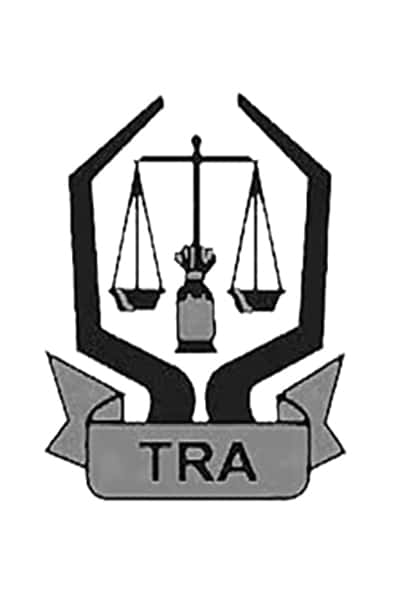Taxation in Tanzania – Direct, Corporate, Individual, Indirect and Value Added Taxes
Taxes are a long-term source of income that enables the Tanzanian government to run its operations. By definition, a tax is a mandatory contribution from a person to the state for the payment of expenses incurred in the common interest of all without reference to the specific

benefits provided. It is a mandatory contribution or payment for financing various public uses. The Tanzania Revenue Authority (TRA) is an institution of the Tanzanian government, responsible for coordinating the assessment, collection and maintenance of the revenue of the central government of Tanzania.
A Brief History of Taxation in Tanzania
Taxation in Tanzania was originally that of colonial system and made improvements at various times from the poll tax (tax levied on every adult, regardless of income or resources) introduced by the British in the early 20th century. The post-colonial reforms included the introduction of 1969 sales, enactment of the new Income Tax Act of 1973, changes to the existing tax law by adjusting tax bases and interest rates, abolition of certain excise duties in 1979 and export duties in 1985 / 86, the re-establishment of some excise duty abolished in 1989.
Recognizing the poor performance of the tax system and the need to improve the taxation system in Tanzania as a whole, the government formed a Tax Commission in October, 1989. The main function of the commission was to study and evaluate the central government and government tax system, local government and its leadership, and make recommendations to the government. The purpose of the commission, in particular, was to make recommendations on changes to the existing tax system in order to expand the scope of tax collection, increase revenue, and be more efficient in economic production. The Commission submitted its report to the government in December, 1991.
Among the commission’s recommendations were to expand the scope of taxation in Tanzania by taxing profits and improve implementation, reduce interest rates on personal and corporate income tax and spread the interest across the broad spectrum, make adjustments to avoid inflation, change the structure of multiple interest rates on sales and excise duties by having value added tax (VAT), and lower excise duty on natural products and luxury goods, simplifying customs duties by lowering interest rates, and reducing tax exemptions of sales and customs tax.
This “low-interest, broad-spectrum” approach was expected to be more effective in equity and resource allocation than the “high-interest, narrow-end” approach used in Tanzania’s tax system in previous years.
Current Issues on Taxation in Tanzania and General Tax Procedure
Basically, taxation in Tanzania is in two structures. Each type is divided according to the law as well as the effectiveness of the final payer event. These two types are direct tax and indirect tax.
Direct Tax
These are taxes levied directly from salaries, business or property ownership and investments. The impact and tax incidence applies to the person concerned which means the tax event cannot be transferred to another person for example, company tax, pay based on your income (Pay As You Earn – PAYE), and withholding tax.
Company Tax

This is a tax paid on the profits of the company. Companies or organizations are required to prepare balance sheet calculations, which must be verified by reputable auditors, and NBAA-recognized accountants as well as TRA. This report is submitted to TRA on the scheduled date. All local and foreign companies must in accordance with the income tax law report income within three months after the start of the revenue year. The company is required to pay taxes in four installments. Six months after the start of the revenue year, the company is required to submit a tax return to TRA. The current corporate tax rate is 30% and 10% for car manufacturers, tractors, and fishing boats for the first five years since its inception.
Personal Income Tax
Individuals include private traders and employees that are taxed on income, with a minimum of 9% while a maximum of 30%. However, for a non-resident the tax levy is 20%, which is levied on gross income. Private traders are required by law to submit their income estimates within 3 months of the revenue year. They are taxed through the estimation system, where the rate of tax paid for estimates is based on annual sales, and not profits.
Indirect Taxes
These are taxes, based on spending. Examples of these taxes include import duties, excise duties, and value added tax, e.g. By definition, a tax legal incidence is triggered by a tax collector as a government agent, and when a successful incidence is placed on the last consumer of a product or service who pays the tax.
Value Added Tax
Value Added Tax is a consumption tax levied by VAT registered traders on all taxable goods and services at the rate of 18%. VAT is a tax levied on various stages of production and distribution until the retail stage. This tax is also levied on imported goods that are manufactured by people even if they are registered or not registered for VAT. All exports are charged 0%.
VAT Registration Requirements
1. All traders and businesses whose taxable income exceeds Shs. 100 million a year or 50 million for a period of six months ending at the end of previous months.
2. Professional service providers such as accountants, lawyers, engineers, and related consultants regardless of their registered income in accordance with the law of the United Republic of Tanzania.
All of the above persons must submit an application for registration to the Internal Revenue Commission within thirty (30) days after being obliged to do so.
Applications for VAT registration are made by filling out application forms online or by hand and the location of the business will be inspected by the TRA prior to approval of registration. The registrant, taxpayer is required to submit a monthly VAT return, payment or zero return before the 20th of the following month after the business month.
Some individuals and institutions are exempt from paying VAT on equipment or importation of taxable goods and services, while some goods and services are exempt from VAT exemption.
For more articles related to the Economy of Tanzania click here!
































